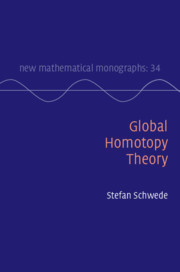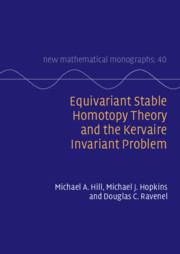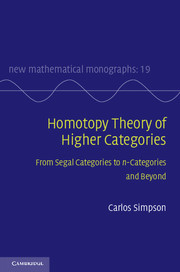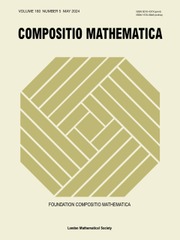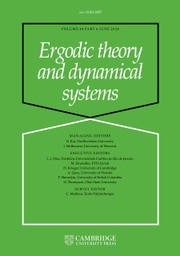Global Homotopy Theory
Equivariant homotopy theory started from geometrically motivated questions about symmetries of manifolds. Several important equivariant phenomena occur not just for a particular group, but in a uniform way for all groups. Prominent examples include stable homotopy, K-theory or bordism. Global equivariant homotopy theory studies such uniform phenomena, i.e. universal symmetries encoded by simultaneous and compatible actions of all compact Lie groups. This book introduces graduate students and researchers to global equivariant homotopy theory. The framework is based on the new notion of global equivalences for orthogonal spectra, a much finer notion of equivalence than is traditionally considered. The treatment is largely self-contained and contains many examples, making it suitable as a textbook for an advanced graduate class. At the same time, the book is a comprehensive research monograph with detailed calculations that reveal the intrinsic beauty of global equivariant phenomena.
- Contains full proofs of many fundamental properties that are hard to find in the literature
- Readers will gain a deeper understanding by working through the many examples
- Suitable as a complete reference and as a standard textbook on the subject
Reviews & endorsements
'This elegant monograph develops the theory of global equivariant spectra from scratch, discusses a wealth of interesting examples, and will no doubt be a catalyst for exciting developments in equivariant topology.' Gregory Z. Arone, Mathematical Reviews Clippings
Product details
October 2018Hardback
9781108425810
846 pages
235 × 158 × 46 mm
1.29kg
Available
Table of Contents
- 1. Unstable global homotopy theory
- 2. Ultra-commutative monoids
- 3. Equivariant stable homotopy theory
- 4. Global stable homotopy theory
- 5. Ultra-commutative ring spectra
- 6. Global Thom and K-theory spectra
- Appendix A. Compactly generated spaces
- Appendix B. Equivariant spaces
- Appendix C. Enriched functor categories
- Bibliography
- Symbol Index
- Index.

